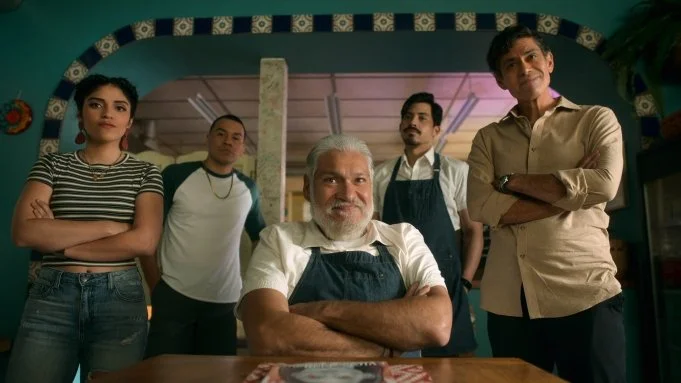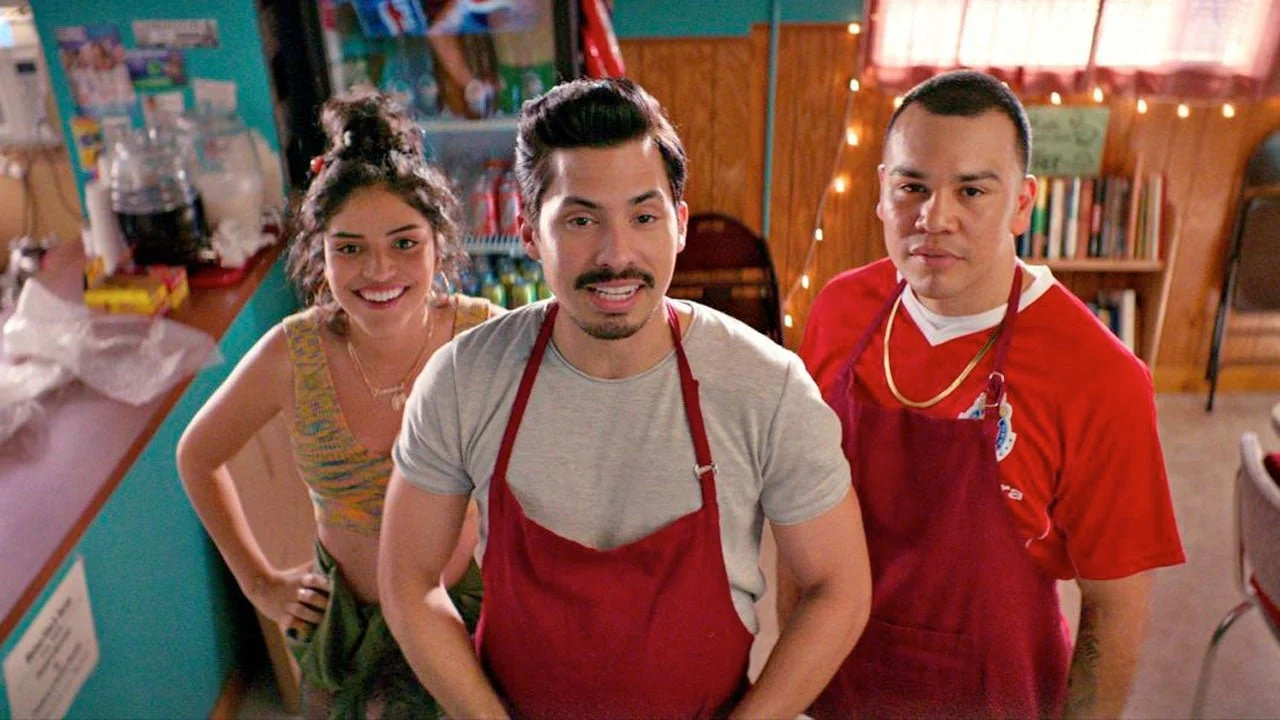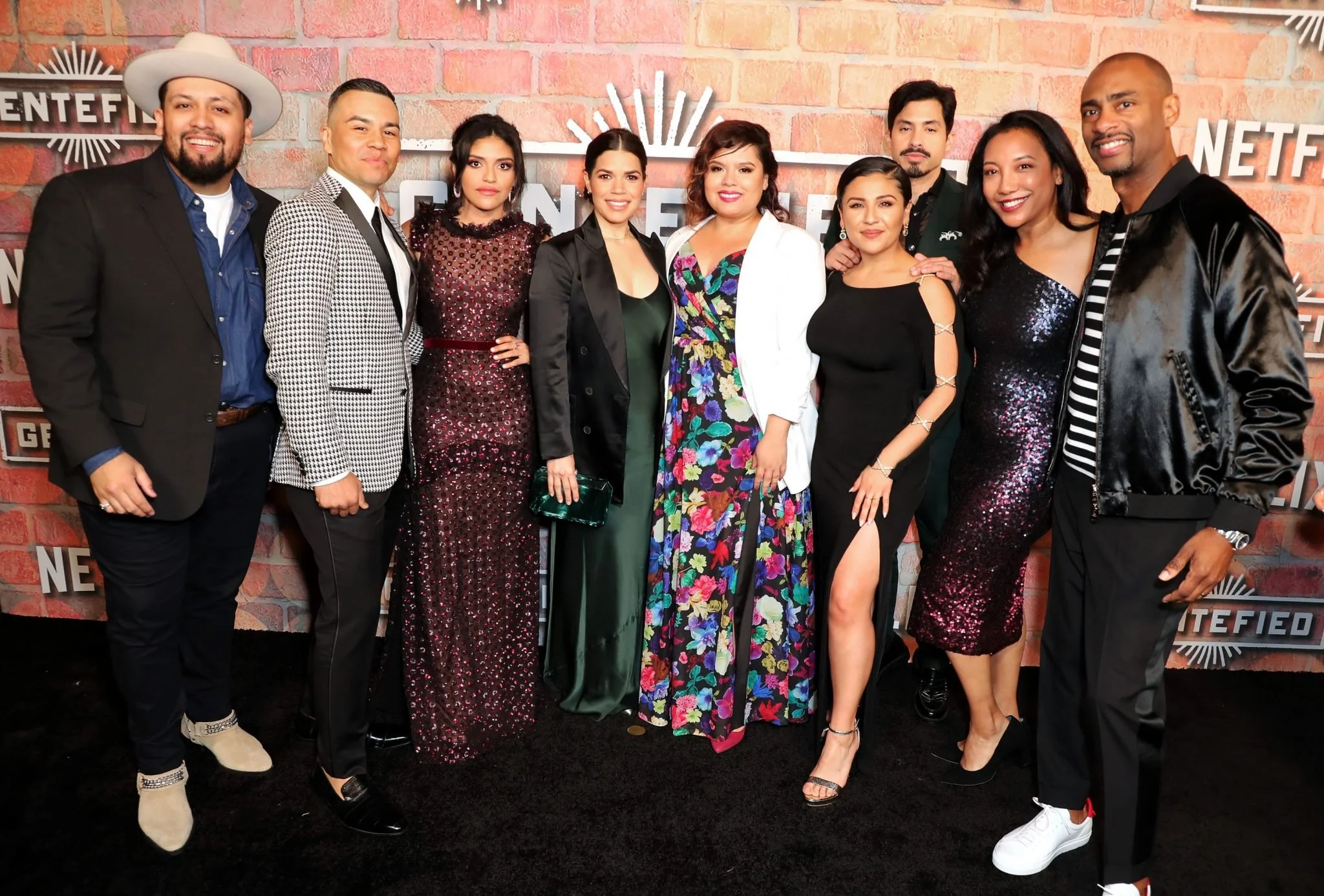Netflix's Gentefied: What a "pinche orgullo"!
Courtesy of Netflix
Interview With Co-Creator Marvin Lemus
I am an absolute nobody. Yet, Marvin Lemus gave me the time of the day to talk about his Netflix show Gentefied. My stalking skills are not to be credited for this opportunity - even though I really exploited them here. It was merely the incredible humbleness of Lemus.
This is how it went, why Gentefied speaks suitably to me as a Latin immigrant, and how Lemus doesn’t give a shit if the “blanquitos” get it or not.
A friend who is deep in the film and entertainment industry - shot out to Atlanta’s Mr. Ari - asked if I had watched Netflix’s Gentefied. A quick google search reminded me that my mother had mentioned the show, but I tuned out assuming it was just another failed attempt at portraying Latinos in the U.S. by making us look like gang members, drug dealers, dramatic women, and uneducated. No thanks.
That night, I decided to give Gentefied a shot. Honestly, I just wanted to support my ignorant already-elaborated-based-on-assumptions opinion. “I’ll watch 2 episodes, and then I can say I tried.”
Courtesy of Netflix
It was 10 p.m. when I dived right into the lives of the Morales cousins, played by the talented Joseph Soria, Karrie Martin, and Carlos Santos. Minutes into the first episode, I got hooked at “culo-nary” (if you know, you know).
Fast forward to 3 a.m. I am awake sitting in my dark living room. The soft light of the TV screen reflected on my face. La Yegros’s “Viene de Mi” playing in the background. Credits rolling.
What just happened?
Ana, Chris and Erik Morales / Courtesy of Netflix
Through a nostalgic journey of laughter, tears, fist pumps, and even a few “amens” praised to the air as if I was in the middle of a Southern Baptist sermon, I had just binge-watched the whole first season of Gentefied, and it felt so good.
Not only did I see myself in the story, but I also saw my family and my community. It spoke directly to me, not just about me. It was written for me, not to entertain someone else using me.
Netflix’s Gentefied tells the story of a three-generations Mexican-American family from Boyle Heights. While on the chase for their dreams, they fight to keep their family-owned taco shop open in the middle of gentrification, symbolizing their struggle to keep their roots in a fast-changing environment.
Challenge Accepted
The next day at my writing class, I bravely announced to Washington Post’s Sarah Kaufman and classmates that I would write a piece on the inspiration behind Gentefied. Yes, my chances at nailing an interview with one of the creators were slim, but it was worth a wild shot. I wanted to use my platform to tell the world about our story as immigrants through Gentefied. Especially when the platform in this case was an Ivy League school where I was still wondering if I even belonged.
After thorough research, I sent Gentefied’s co-creator Marvin Lemus a request for an interview through various - and I do mean “various” - platforms.
I have sent way too many emails in my life asking for an opportunity, and I don't always hear back. If people with smaller platforms have ignored me before, why would Lemus care?
Well, he did.
With humbleness, Marvin agreed to help out this brown girl.
The Marvin Lemus
Marvin Lemus is an award-winning filmmaker who started from the bottom, and (yes, you know it) now he is here - rising to the top and taking a whole community with him.
Lemus is co-creator, co-showrunner, director, and executive producer of Netflix’s hit series Gentefied, which is also executive produced by America Ferrera and MACROS.
Marvin Lemus with America Ferrera, who joined as executive producer and director. Photo: Kevin Estrada for Netflix
With a Mexican and Guatemalan background, Lemus grew up in Bakersville, California. A place that - as much as he recognizes as home - inspires him to succeed just so that he doesn’t have to go back. “I have to make this work,” says Marvin who now lives in Los Angeles. “I have this fear of having to go back home because it’s fucking hot, and there is nothing to do there.”
His success didn’t happen overnight. Lemus has been hustling for a long time. “There was a time when I used to give up a lot easier in school,” says Lemus explaining how his parents are his inspiration to bounce back. “The work ethic and drive to keep moving forward come from my immigrant parents. They were both undocumented. They don’t get to hear a rejection and give up. They have to find solutions every step of the way. They had to get past the hurdles using whatever they had. There was no waiting around for the right tools, money, or people.”
Without going to a “fancy artsy school,” as he calls it, Lemus established his own goals and disciplines that have led him to perfect his art. He challenged himself to produce a short film every single weekend for a year. Without a lot of resources, he had to make it happen using whatever he did have.
Working with low-budget films became his thing. He knew how to resourcefully make it happen. But also, he successfully worked with big brands to create digital content. It wasn’t until he collaborated with the digital campaign for the feature film “Dear White People”, that the spark for writing his own story surfaced.
Writing Gentefied
Struggling with his identity, and never feeling Mexican enough, Lemus had been avoiding telling his story. He hadn't realized that he had a story to tell. A story with which many of us would feel identified.
Ni de aqui, ni de aya. “I was Chris Morales,” says Lemus, referring to one of the series’s characters who despite being from Boyle Heights, was raised in Idaho and always struggled with his identity. He felt that he had to constantly prove his Mexican-ess to society, his family, and even himself.
“For a long time, the Latino story was not interesting to me. I felt like there was no place for me,” says Lemus talking about the moment that led him to recognize that he is Latino and that he has a story to tell. “That is why we made the damn thing.”
In 2017, Lemus co-created Gentefied with Linda Yvette Chávez. What started as a digital series became Netflix’s hit, premiering Season 1 in 2020, and Season 2 in 2021.
Not English. Not Spanish. Spanglish.
“We got the Spanglish fucking right,” says Lemus.
Celebrating Latinos' culture in the U.S., Gentefied is unapologetically written in Spanglish, including jokes, sayings, and idioms that cannot be translated. Spanglish is a mix of English and Spanish, which is exactly what is commonly heard at home for many of us.
“I don’t care if anyone else watches the show. If anyone else wants to come to the party, fine,” shares Lemus talking about the decision to include jokes and terms that only Latinos could understand. “Hollywood never thought ‘What about the brownies at home? Will they be able to understand?’ I don’t care. I’m making this for Latinos.”
The beautify of Gentefied’s script is that the jokes were not laughing at me, they were laughing with me. The characters talked like my mom, said things my grandmother would say, and had the accent my father has in his broken English. It wasn’t exaggerated. It wasn’t fake. It was coming from a very authentic and accurate place that made me feel at home.
“I lived between the two languages,” says Lemus explaining his desire to make the show completely in Spanglish. “If we couldn’t do it this way, then we didn’t want to do it at all.”
Gentefied’s co-creator Marvin Lemus at the premier with J.J. Soria, Karrie Martin, America Ferrera, co-creator Linda Yvette Chavez, Annie Gonzalez, producers Monica Macer and Charles D. King. Picture Leon Bennett/Getty Images for Netflix.
Being Seen Feels Good
Growing up undocumented in the U.S., I saw my parents do the impossible to help me and my brother succeed. Even if they didn’t understand the culture, language, and people we now lived in, they never stopped supporting us and sacrificing everything for the family. It was an untold lesson my parents thoughts us: Family is always first.
Marvin Lemus and Linda Yvette Chávez have brought to a big platform our story told through The Morales, helping many of us feel understood and seen. It is a love letter to the creator’s roots, and a formal invitation for others to come in and see from within what moves us.
So, come in. See the world through our eyes and our heart. We have a lot to show you.
P.S. Gracias por tu tiempo, Marvin. You are as authentic as your work. ¡Que pinche orgullo!





